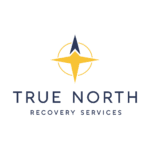Embarking on the journey to sobriety is a profound commitment, one that requires not only personal resolve but also the right support system. For many individuals, Intensive Outpatient Programs (IOPs) serve as a pivotal component in achieving and maintaining long-term sobriety. These programs offer a balanced approach, providing structured treatment while allowing participants to uphold daily responsibilities.
Understanding Intensive Outpatient Programs (IOPs)
Intensive Outpatient Programs are structured treatment plans designed for individuals battling substance use disorders who do not require 24-hour supervision. Unlike residential treatment, where individuals temporarily step away from their regular lives, IOPs provide structured treatment several days per week while allowing participants to continue with their daily responsibilities.
Typically, participants engage in therapy sessions multiple times a week, each lasting a few hours. This structure ensures that individuals receive comprehensive care, including individual counseling, group therapy, and educational sessions, all tailored to address the complexities of addiction.
Key Components of IOPs
IOPs encompass a variety of therapeutic modalities and support mechanisms aimed at addressing the multifaceted nature of addiction:
1. Individual Counseling
One-on-one sessions with trained therapists allow individuals to delve into personal challenges, identify triggers, and develop coping strategies. This personalized approach ensures that underlying issues contributing to substance use are effectively addressed.
2. Group Therapy
Group sessions foster a sense of community and shared experience. Participants can share their journeys, gain insights from others, and build a support network crucial for sustained sobriety.
3. Educational Workshops
Knowledge is a powerful tool in recovery. Educational sessions inform participants about the science of addiction, relapse prevention techniques, and the importance of lifestyle changes, empowering them to make informed decisions.
4. Family Involvement
Addiction affects not just the individual but also their loved ones. Many IOPs incorporate family therapy sessions to mend relationships, educate family members, and create a supportive home environment conducive to recovery.
5. Relapse Prevention Planning
A critical aspect of IOPs is equipping individuals with tools and strategies to prevent relapse. This includes identifying early warning signs, developing action plans, and establishing a support system to turn to in times of need.
Benefits of IOPs in Supporting Long-Term Sobriety
Intensive Outpatient Programs offer several advantages that make them an effective choice for many individuals seeking recovery:
1. Flexibility
IOPs provide structured treatment several days per week while allowing participants to continue with their daily responsibilities.
2. Cost-Effectiveness
Generally, IOPs are more affordable than inpatient programs since they do not require residential facilities or round-the-clock staffing.
3. Real-World Application
By allowing individuals to remain in their home environments, IOPs enable participants to apply coping strategies and skills in real-time, facilitating a smoother transition to everyday life.
4. Access to Support Networks
Remaining within their communities allows individuals to maintain connections with family and friends, enhancing their support system and providing additional motivation to stay sober.
The Role of IOPs in the Continuum of Care
IOPs are an important part of the continuum of care for alcohol and drug use disorders. They are as effective as inpatient treatment for most individuals seeking care. This flexibility ensures that individuals receive the appropriate level of care at each stage of their recovery journey.
Choosing the Right IOP
Selecting an appropriate Intensive Outpatient Program is crucial for successful recovery. Consider the following factors:
1. Accreditation and Licensing
Ensure the program is accredited by relevant health authorities and employs licensed professionals trained in addiction treatment.
2. Comprehensive Assessment
A quality IOP should conduct thorough assessments to develop personalized treatment plans tailored to individual needs.
3. Evidence-Based Therapies
The program should utilize evidence-based therapeutic approaches, such as Cognitive Behavioral Therapy (CBT), Motivational Interviewing, and other proven methodologies.
4. Aftercare Support
Recovery is an ongoing process. Programs that offer aftercare services, such as continued counseling, support groups, and alumni networks, provide sustained support for long-term sobriety.
True North Recovery Services: Guiding You Towards Lasting Sobriety
At True North Recovery Services, we understand that the path to recovery is unique for each individual. Our Intensive Outpatient Program is designed to provide comprehensive, personalized care that addresses both addiction and co-occurring mental health disorders.
Our program includes individual therapy, group counseling, family involvement, and educational workshops, all aimed at equipping you with the tools necessary for lasting sobriety. We emphasize a holistic approach, recognizing the importance of healing the mind, body, and spirit.
Located in the Denver Metro Area, True North is dedicated to serving people in our community who want to find complete recovery and a better life on the other side of addiction and substance use disorder. We understand that treatment is a multifaceted approach and one that is a deeply personal experience. It’s not a one-size-fits-all process. For this reason, we promote a holistic and comprehensive approach to treatment and encourage our clients to explore new pathways that support their own recovery.
Our compassionate team is committed to walking alongside you every step of the way, providing support, guidance, and encouragement as you navigate the challenges and triumphs of recovery.


